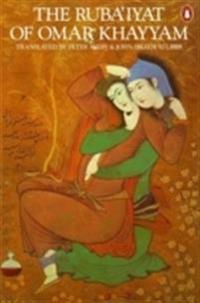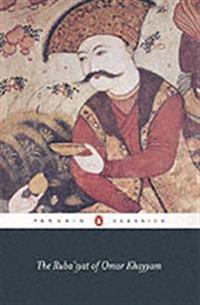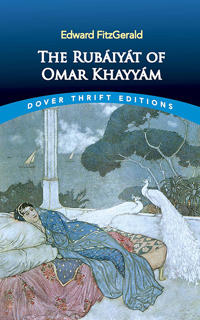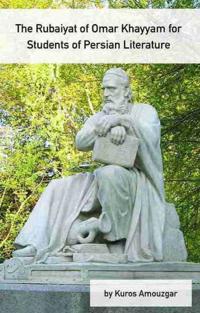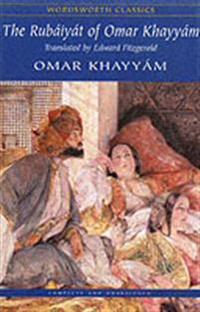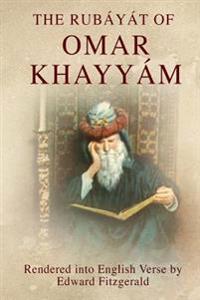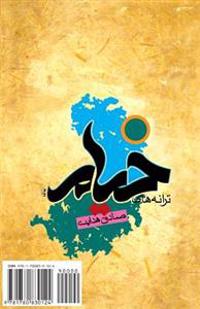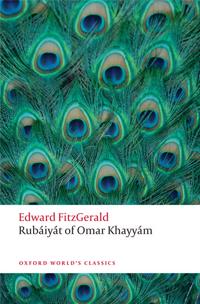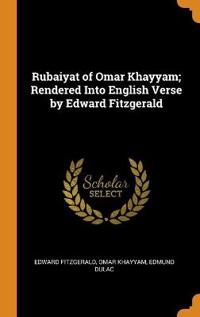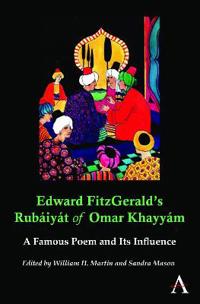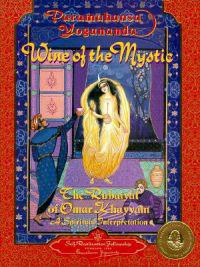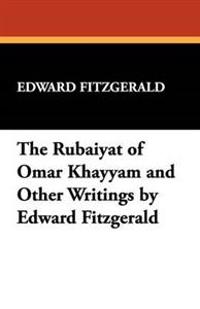The Ruba'iyat of Omar Khayyam (Häftad)
avOmar Khayyam
ISBN: 9780140059540 - UTGIVEN: 198111Presents the eleventh-century Persian poet's quatrains that express his philosophy of love and life
The Ruba'Iyat of Omar Khayyam (Storpocket)
avOmar Khayyam
ISBN: 9780140443844 - UTGIVEN: 198109Revered in eleventh-century Persia as an astronomer, mathematician and philosopher, Omar Khayyam is now known first and foremost for his "Ruba'iyat". The short epigrammatic stanza form allowed poets of his day to express personal feelings, beliefs and doubts with wit and clarity, and Khayyam became [...]
The Rubaiyat of Omar Khayyam (Häftad)
avOmar Khayyam, Edward FitzGerald
ISBN: 9780486264677 - UTGIVEN: 199103One of the best-known, most often quoted English classics. Edward FitzGerald's free translation of skeptical, hedonistic verse attributed to Omar Khayyam (1048-1122), Persian mathematician, astronomer and philosopher. The 5th edition incorporates FitzGerald's handwritten changes in the 4th edition, [...]
Rubaiyat of Omar Khayyam (Häftad)
avOmar Khayyam
ISBN: 9781420925777 - UTGIVEN: 2005-01Omar Khayyam was a Persian astronomer and mathematician born in the later part of the 11th century. His poetry, which received very little notoriety in its day, achieved classic status when it was discovered and rendered into English verse by Edward Fitzgerald over seven hundred years later. Present[...]
The Rubaiyat of Omar Khayyam for Students of Persian Literature (Häftad)
avOmar Khayyam, Kuros Amouzgar
ISBN: 9781588140838 - UTGIVEN: 201207Since leaving his homeland after the Iranian revolution in 1979, Kuros Amouzgar witnessed his children and many other second generation Iranians who were eager to learn more about their own heritage, but who were unable to read the language of their parents. He decided to use the quatrains of Omar K[...]
Rubaiyat of Omar Khayyam (Storpocket)
avOmar Khayyam
ISBN: 9781780228297 - UTGIVEN: 2014-06Edward FitzGerald's much-loved, often-quoted, bestselling 1859 translation of the RUBAIYAT, with Attar's charming narrative poem, BIRD PARLIAMENT. Also featuring an extensive new introduction with notes and chronology. Awake! for Morning in the Bowl of Night Has flung the Stone that put the Stars to[...]
The Rubaiyat of Omar Khayyam (Storpocket)
avOmar Khayyam
ISBN: 9781853261879 - UTGIVEN: 199611This edition presents the classic free translation by Edward Fitzgerald of the great Persian poem by the 12th century astronomer and poet - Omar Khayy?m. Fitzgerald's masterful translation was first published as an anonymous pamphlet in 1859. Its colourful, exotic and remote imagery greatly appealed[...]
The Rubaiyat of Omar Khayyam (Inbunden)
avOmar Khayyßm
ISBN: 9781851244171 - UTGIVEN: 2015-02'A Book of Verses underneath the Bough, A Jug of Wine, a Loaf of Bread - and Thou ...' When Edward Fitzgerald first published his translation of the poetry of Omar Khayyam in 1859 it had little impact on the literary world. But a chance find in a bookshop by a friend of the Pre-Raphaelites led to i[...]
The Rubayat of Omar Khayyam: (Or, Rubaiyat of Omar Khayyam) (häftad)
ISBN: 9781495464461 - UTGIVEN: 2014-02Rubaiyat of Omar Khayyam: Taraneh-Haye Khayyam (Häftad)
avSadegh Hedayat
ISBN: 9781780830124 - UTGIVEN: 2011-12Rubaiyat of Omar Khayyam (Pocket)
avEdward Fitzgerald, Daniel Karlin, Edward Fitzgerald
ISBN: 9780199580507 - UTGIVEN: 201007'The Moving Finger writes; and, having writ Moves on: nor all thy Piety nor Wit Shall lure it back to cancel half a line Nor all thy tears wash out a word of it.' In the 'rubaiyat' (short epigrammatic poems) of the medieval Persian poet, mathematician, and philosopher Omar Khayyam, Edward FitzGerald[...]
Rubaiyat of Omar Khayyam; Rendered Into English Verse by Edward Fitzgerald
ISBN: 9780342705788 - UTGIVEN: 2018-10This work has been selected by scholars as being culturally important and is part of the knowledge base of civilization as we know it.This work is in the public domain in the United States of America, and possibly other nations. Within the United States, you may freely copy and distribute this work,[...]
The Rubaiyat of Omar Khayyam (Inbunden)
ISBN: 9780785826118 - UTGIVEN: 2010-05Perhaps the most widely known poem in the world, the Rubaiyat has captured the imagination of millions of readers down the centuries. Its simple eloquence and lilting rhymes form an elegy to the transience of life and the beauty of human experience.
"The Rubaiyat" resonates with readers around t[...]Rubaiyat of Omar Khayyam
ISBN: 9780828314527 - UTGIVEN: 1969-06Philosopher, astronomer and mathematician, Khayyam as a poet possesses a singular originality. His poetry is richly charged with evocative power and offers a view of life characteristic of his stormy times, with striking relevance to the present day. This translation by Peter Avery and John Heath-St[...]
Wine of the Mystic: The Rubaiyat of Omar Khayyam: A Spiritual Interpretation (Inbunden)
avParamahansa Yogananda
ISBN: 9780876122259 - UTGIVEN: 1994-06Wine of the Mystic: The Rubaiyat of Omar Khayyam: A Spiritual Interpretation (häftad)
ISBN: 9780876122266 - UTGIVEN: 1996-06The Quatrains of Omar Khayyam (Häftad)
ISBN: 9780974566719 - UTGIVEN: 2005-07Though few translations have had as much impact as Edward Fitzgerald's Rubaiyat of Omar Khayyam, anyone who wishes to truly appreciate Omar Khayyam needs to read more than one translation. This volume contains Edward Fitzgerald's classic translation with all its variations, Justin McCarthy's elegant[...]
Rubaiyat of Omar Khayyam; Rendered Into English Verse by Edward Fitzgerald
ISBN: 9781296603892 - UTGIVEN: 2015-08The Rubaiyat of Omar Khayyam and Other Writings by Edward Fitzgerald (Häftad)
ISBN: 9781434479136 - UTGIVEN: 200901Rubaiyat of Omar Khayyam (Inbunden)
ISBN: 9781445756387 - UTGIVEN: 2010-07Omar Khayyam's haunting, timeless verses were translated into English by Edward FitzGerald and first published in 1859. That first edition is presented here in facsimile, accompanied by computer-generated typesetting of the later editions, providing a 'complete edition'. Persian astronomer-poet Omar[...]

